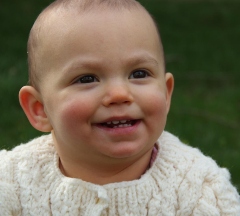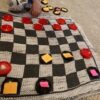It started in my basement.
Each stuffed animal would sit on top of the ping pong table waiting to find out if they passed the spelling quiz. Beary could never spell “Because” correctly and would have to stay after school to get some more help. Words were never his thing. Luckily for him – they were mine.
So I used them. I wrote songs. Terrible, terrible songs. When two people are very close, they’re friends. They have friendship. Carole King, I wasn’t, but my mom was a big fan.
I wrote stories. My 7th grade English teacher told me the eighty-seven page, hand written, double spaced, story about a woman looking for her daughter was a bit excessive – but it showed promise.
I wrote letters. A one-hundred-and two page ongoing note to my most trusted 11th grade friend. Perhaps I should have taken more notes on American History and less on the boy in the front row, but it was good practice.
I loved words. I would use thousands of them a day. In fact my whole family did – so my poor father rarely got to speak more than five a night. How was school today, girls? I kept on trudging through my uneventful childhood and found every opportunity I could to practice them. On stage. On paper. With sign-language. Formal essays. Short stories. Poetry. Literature. Bring on the words.
So, perhaps it was only fitting that this little entities became my livelihood. I am a high school English teacher. And I hear words every single day.
The word choice Gwendolyn Brooks uses to capture the stereotypes of teenagers. The hubris of Odysseus. The rhythm of Shakespeare. The pain of hearing “That’s so gay” in the hallway. The bullying caused by a snide remark. The devastation of knowing there is a student with so many words who never feels comfortable to share them. And we can’t always be Atticus. In a fictional world, there is time to prepare the perfect response and know exactly which word to use to rectify a situation – but in an everyday life, it is too exhausting. I can’t always Shift F7 to find the thesaurus to know the right thing to say. But I keep trying. Because these little words are everywhere.
They are on the papers I grade. The books I read. The grocery list on my fridge. The bills on my desk. They are everywhere.
“You’re pregnant.” “It’s a girl.” “There’s something wrong.” “We don’t know if she will ever speak.”
Cri Du Chat. It’s a new word in my vocabulary . In French, it means “Cry of the Cat”. In medical school, it means a genetic disorder. In the doctor’s office, it means tests and therapy. At my kitchen table, it means my daughter.
So, we find words in new places. They are hiding in smiles, dance moves, and signs. They sneak in with “Mama” and “More”. They come out with pointing and listening and just knowing. And each day, we wait and wonder. Will there be a new word? Does she understand ours?
And then the words form questions. Will she ask me where she left her shoes? Will she remind me to pick up more milk at the grocery store? Will she yell as she runs down the soccer field? Will she ever stress about where her thesis statement goes?
And I don’t know.
And for the girl who is shaped by words. Who teaches them every single day. The power of vocabulary. The derivation of a term. The perfect synonym. Turns out –maybe you don’t need them at all.
Maybe there is something much more powerful. Something that encapsulates pride and fear, strength, and temerity, sadness, and joy, love, and comfort. Being a mother and knowing how to speak to your child that cannot speak.
And when they create the word for that – let me know.







I appreciate your words and story that is being written.
I am so grateful that I made it here to read this.